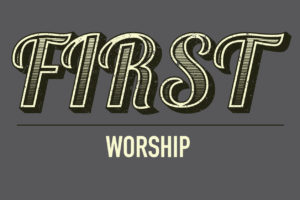 I suppose it all began for me when I read Richard Foster’s classic book ‘The Celebration of Discipline’ where in the final chapter he flips it around and urges ‘the discipline of celebration.’ Clever, I thought. Part of that includes worship, that which I’d so dutifully done basically every Sunday since childhood – aha, that was a clue, ‘dutifully.’
I suppose it all began for me when I read Richard Foster’s classic book ‘The Celebration of Discipline’ where in the final chapter he flips it around and urges ‘the discipline of celebration.’ Clever, I thought. Part of that includes worship, that which I’d so dutifully done basically every Sunday since childhood – aha, that was a clue, ‘dutifully.’
Around the same time I attended a ‘Worship’ class, mandatory for every seminarian. As the 8-week class gained momentum, one week on ‘invocation,’ another week on ‘call to worship’ yet another on ‘scripture reading’ I began to realize how impoverished I was.
The clincher was the image of the theater, where we have the actor on stage, the prompter off to the side and the audience waiting to be entertained – every Sunday many people function like that, the preacher and the musicians are the actors, God is prompting and the congregation hopes to be entertained. Guilty. In fact worship reverses the arrangement, completely and utterly – God is the audience, the preacher is the prompter and the congregation are the actors. Simply put, when we gather for worship, we are ‘on’ – liturgy literally means ‘the work of the people.’
Simply put, when we gather for worship, we are ‘on’ – liturgy literally means ‘the work of the people.’
Talk about a paradigm shift.
Slowly I began to ‘participate’ in worship, I’m talking every moment of the convened experience; and I began to anticipate worship. No longer ‘sit and listen … listen and sit … sit and listen.’ And it transformed me, expanding to include body posture, vocal interaction and deep, deep engagement in spirit.
Quite candidly, regular worship is the most therapeutic activity of my week. Deeply healing.
I love the record of David, the giant slayer, military genius who with his ‘mighty men’ worships God with ‘all his might.’ Frederick Beuchner paints a quite wonderful picture: ‘David had the ark loaded onto a custom-built cart and made a regular circus parade of it, complete with horns, harps, cymbals, and psalteries, not to mention himself high-stepping out front like the Mayor of Dublin on Saint Patrick’s Day.’ Wow! Now that’s a congress.
From the preliminary music to the postlude I love worship, and I’m rarely disappointed. And, like the old Quaker maxim, ‘when the meeting ends, the service begins.’
Come worship with us.




